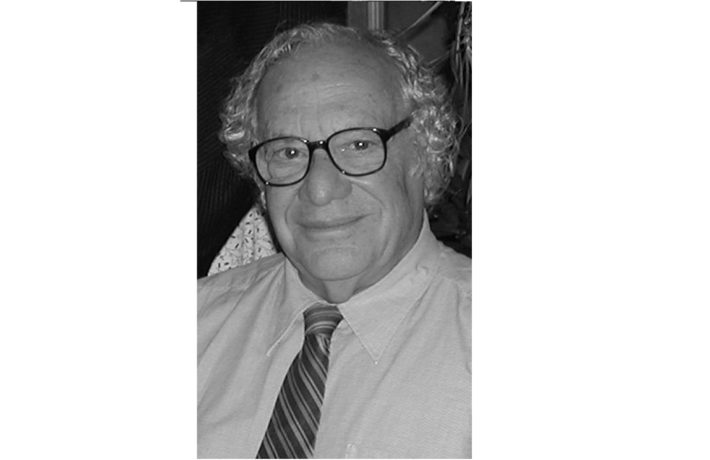
February 3, 1924 – November 16, 2009
A child of Jewish immigrants who grew up in depression-era Toronto, Gil Levine has been called one of the most influential Canadian labour leaders of his time and the “father of labour research.” A life-long activist for social justice, Gil was an innovator, mentor, historian, peace activist, socialist, folk music lover and family man.
Levine learned the streets of Toronto delivering newspapers, telegrams and herbalist products on his bicycle all over town as a young boy. After a stint in the army, graduation from the University of Toronto in Sociology and Social Work and a few odd jobs, he landed a research position with the National Union of Public Employees (NUPE) in 1956. NUPE later merged to create the Canadian Union of Public Employees (CUPE), now the largest union in Canada.
Levine was a pioneer of labour research in Canada. He used research to make gains for workers, negotiating contracts, writing conciliation and arbitration briefs, and analysing data to raise wages and working conditions for tens of thousands of workers. Along the way, he mentored dozens of younger research staff. He understood the importance of making research accessible, creating The CUPE Facts with its short, innovative articles as valuable resources for CUPE staff, members and other unions but also for feminists and other social partners. He forged connections between labour and the academic world, serving on the editorial board of Labour/Le Travail and as the first labour president of the Canadian Industrial Relations Association.
Levine was married to Helen Zivian Levine, a leading Canadian feminist. A pioneer of Women’s Studies at Carleton University, she received the Governor General’s Person’s Award in 1989. He was as committed to Helen, daughters Tamara and Karen and grandchildren Rachel, Daniel and Gabriel as he was to the labour movement and social justice. He loved Yiddishkeit, folk music, tennis, cycling, and corny jokes. He was a regular at peace demonstrations, political events and the Ottawa Folk Festival. A staunch believer in the power of collective singing to change the world, he had helped bring Pete Seeger to Ottawa in 1958. The annual hootenannies at Gil and Helen’s house were legendary, and Gil’s Hootenanny is an annual community event, now in its ninth year.
While he retired from CUPE in 1988, he never stopped organizing. He continued to work with labour to strengthen its involvement with social movements. He pursued his love of labour history and wrote a biography of the fiery CUPE leader Pat Lenihan. He organized an annual fundraising dinner for the magazine Canadian Dimension for over twenty years, was a founding member of the editorial board of Just Labour, and participated in projects of the Workers Arts and Heritage Centre.
Until his death in 2009, Levine remained an energetic contributor to his community and continued to advocate for social justice and labour rights. His family and friends describe him as a leading voice of conscience in the Canadian, Ottawa, and Jewish communities and as having been “happiest when he was fighting for change, winning rights for workers and organizing everybody.”
Images-
Featured Photo: Gilbert Levine, Tamara Levine, [ca. 2002]. Courtesy of the Levine family